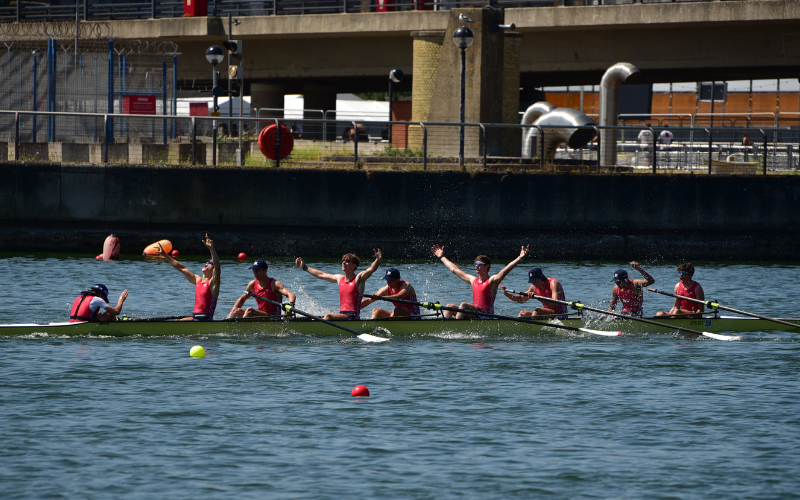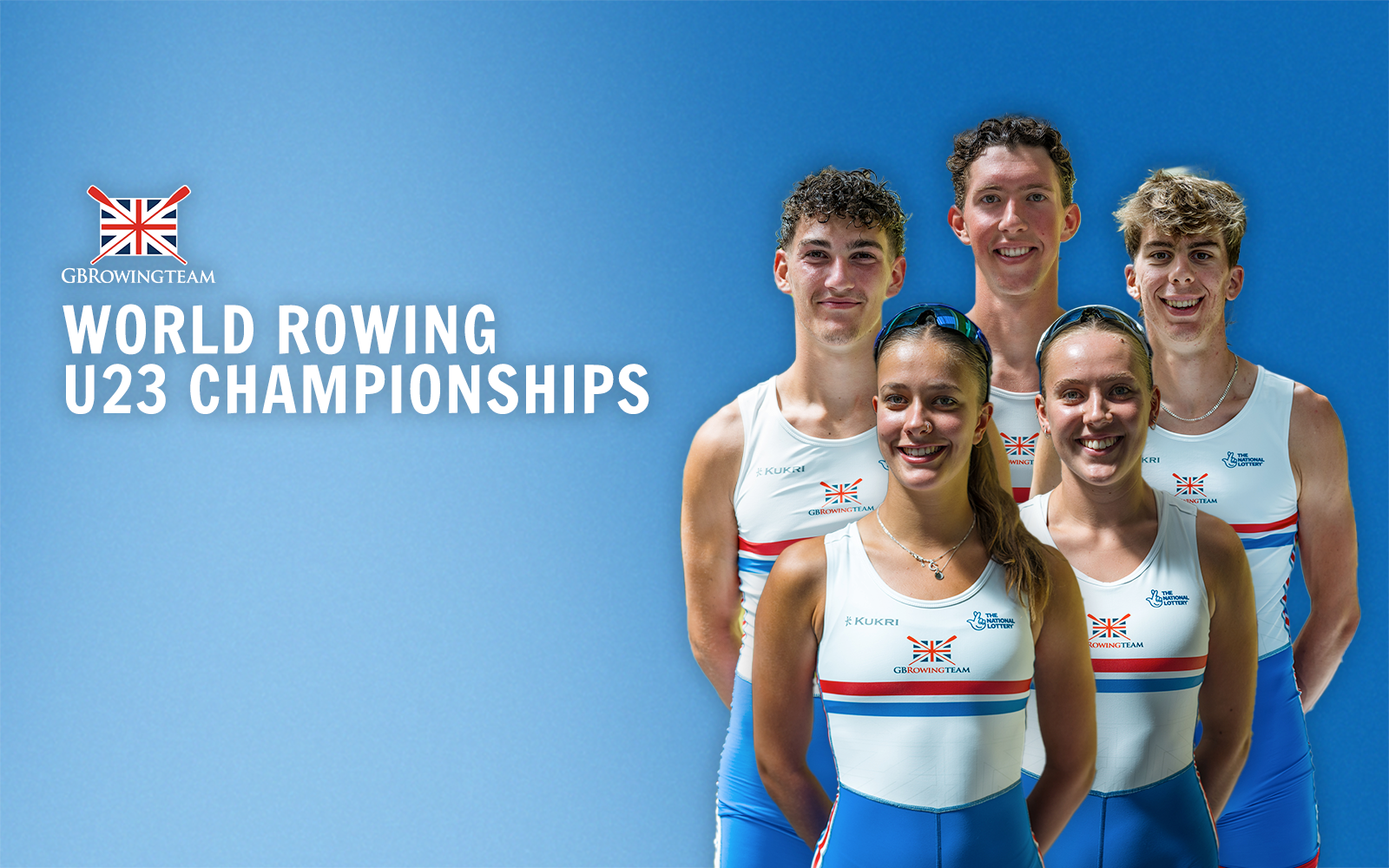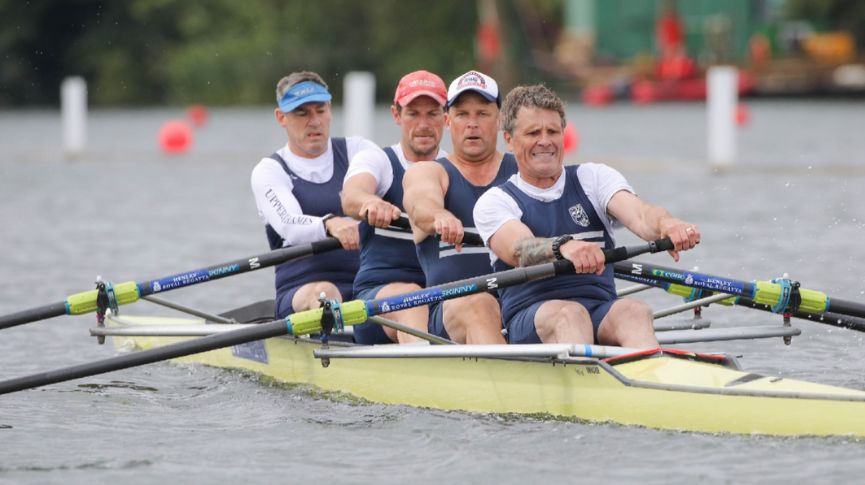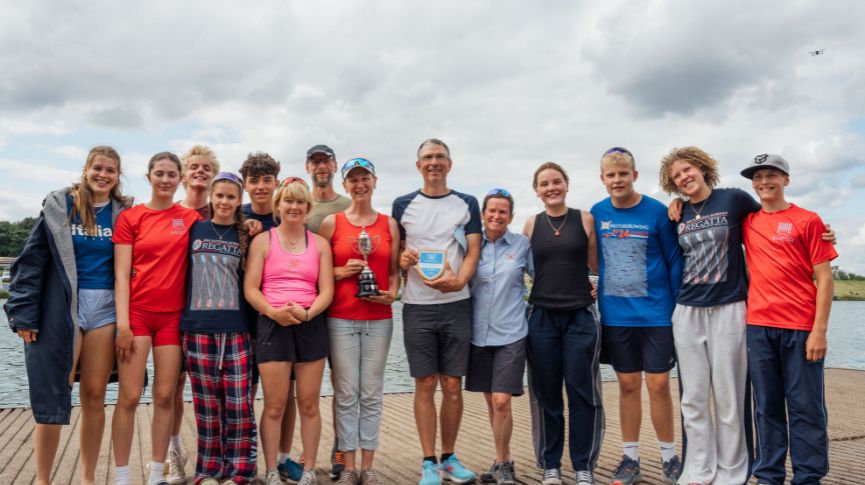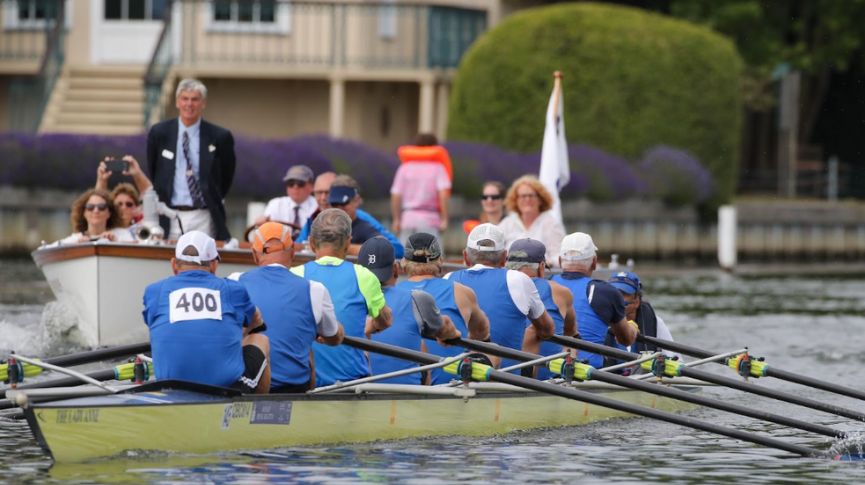Alfie Anderson wins the historic Doggett’s Coat and Badge Race on the River Thames
On 4 September, the 304th edition of the Doggett’s Coat and Badge Race was contested by two rowers in central London, with Alfie Anderson prevailing in 25 minutes and 27 seconds. Tim Koch reports
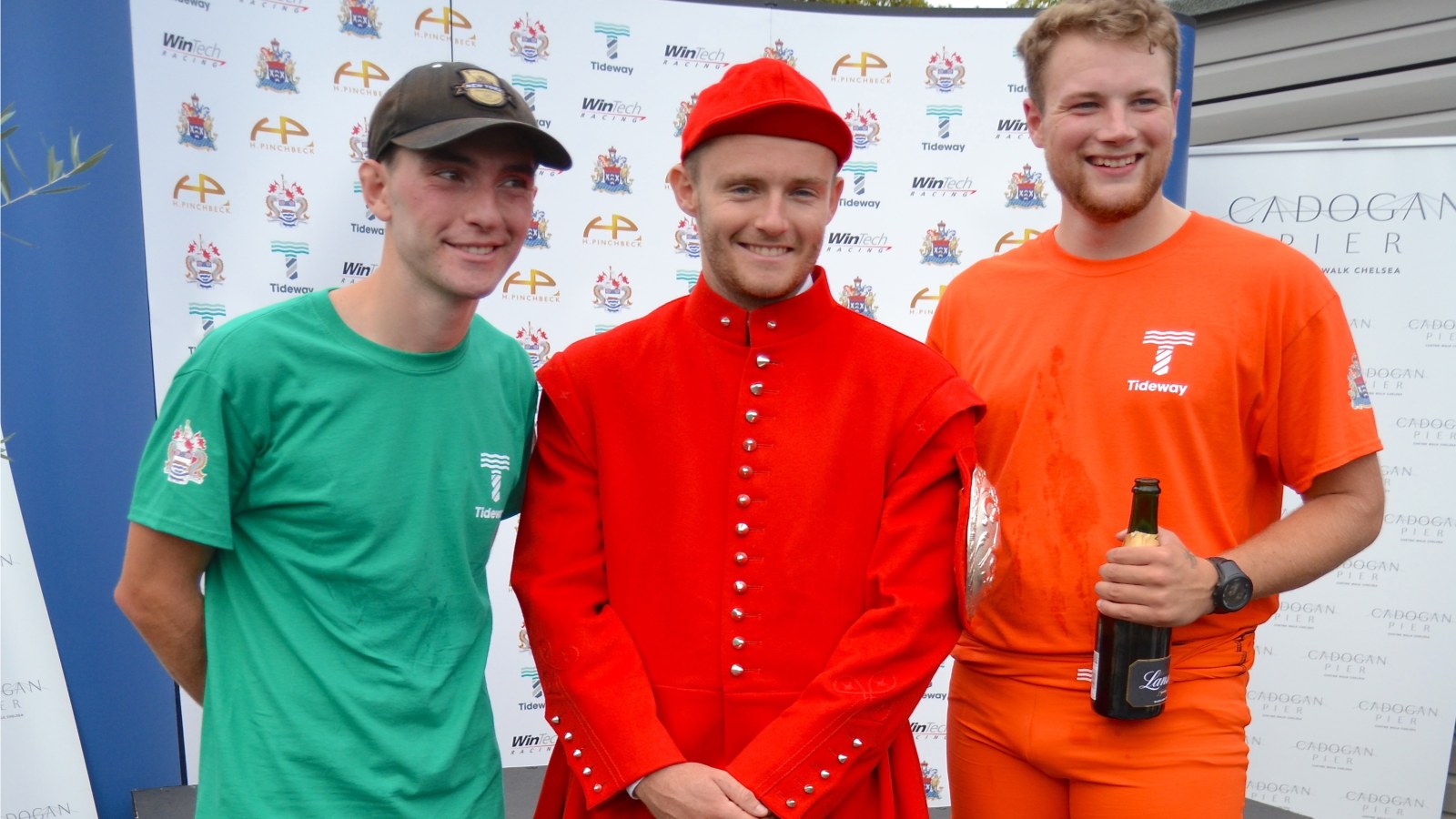
2018 Doggett's winner Alfie Anderson (right) and George McCarthy (left) with 2017 Doggett's winner Jack Keech
Most think that the annual clash between Oxford and Cambridge is the world’s oldest existing rowing race – but the strangely named Doggett’s Coat and Badge is actually 114 years older. It was started in 1715 by actor, Thomas Doggett, as a sculling race for up to six new watermen – men who had just finished the long apprenticeship to carry goods and/or people on the Thames. The prize then – and now – is a splendid ‘Coat and Badge’, representing the scarlet costume of an 18th-century waterman adorned with a large, solid silver arm badge.
Organised by the Fishmongers’ Company, the 304th Doggett’s took place on Tuesday, 4 September over the traditional 7,400 metres of winding and unsettled waters between London Bridge and Cadogan Pier, Chelsea. This year, the race came under the umbrella of Totally Thames, an annual month-long festival of events celebrating all things to do with London’s river.
Unusually, there were only two entrants in this year’s race, both making their final third attempt: Alfie Anderson, 23, from Poplar, Blackwall and District Rowing Club and George McCarthy, 24, representing Globe Rowing Club. Anderson was the bigger and more experienced man, but McCarthy had the advantage of having three Doggett’s winners in his family to give advice and encouragement.
A mild day and a benevolent Thames saw a clean start to the race. Initially, Anderson chose a central line and McCarthy stayed closer to the north bank. Both passed under the first two of the 10 bridges on the course near level, perhaps with McCarthy just ahead for a time. However, between Southwark Bridge (400 metres in) and the Millennium Bridge (700 metres in), Anderson used his greater size and went ahead, never to relinquish his lead until he passed the finish line in a time of 25 minutes and 27 seconds, with McCarthy 19 seconds behind.
I rowed for Poplar because I promised that I would win the race for them as a kid
Credit must go to McCarthy who never gave up and kept his opponent under pressure from start to finish.
Anderson later admitted, ‘‘It was tough. It was harder than I thought it was going to be.’’
He went on to praise the coaching he received from German Pradera Anllo of Fulham Reach Boat Club, and also gave credit to his old club, London Rowing Club. However, he competed for Poplar, Blackwall & District RC, where he started rowing at the age of 15.
He said, “I rowed for Poplar because I promised that I would win the race for them as a kid.”
Tim Koch is a regular contributor to Hear the Boat Sing.


